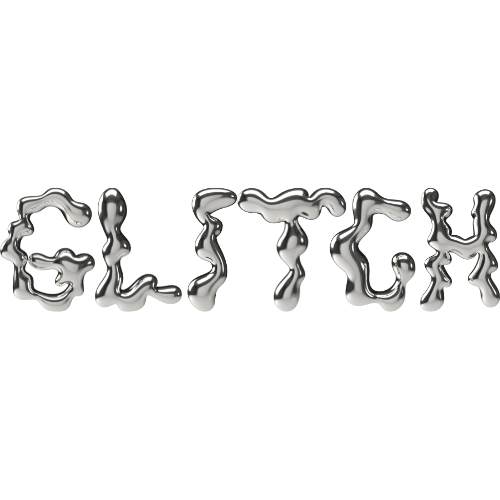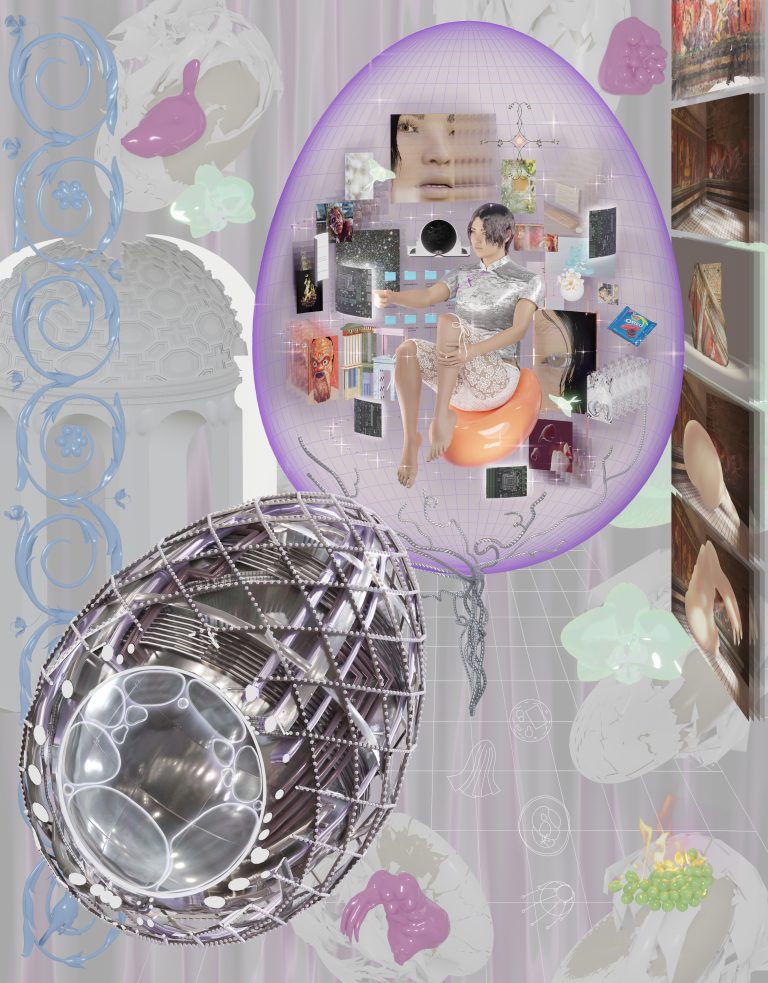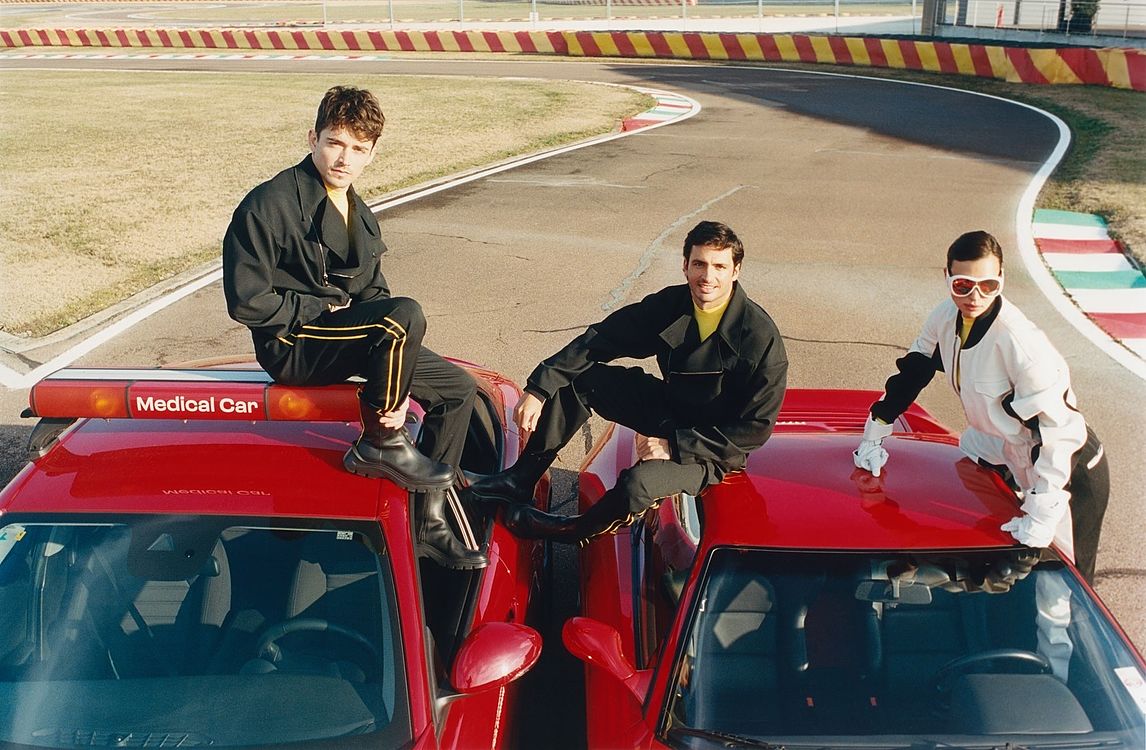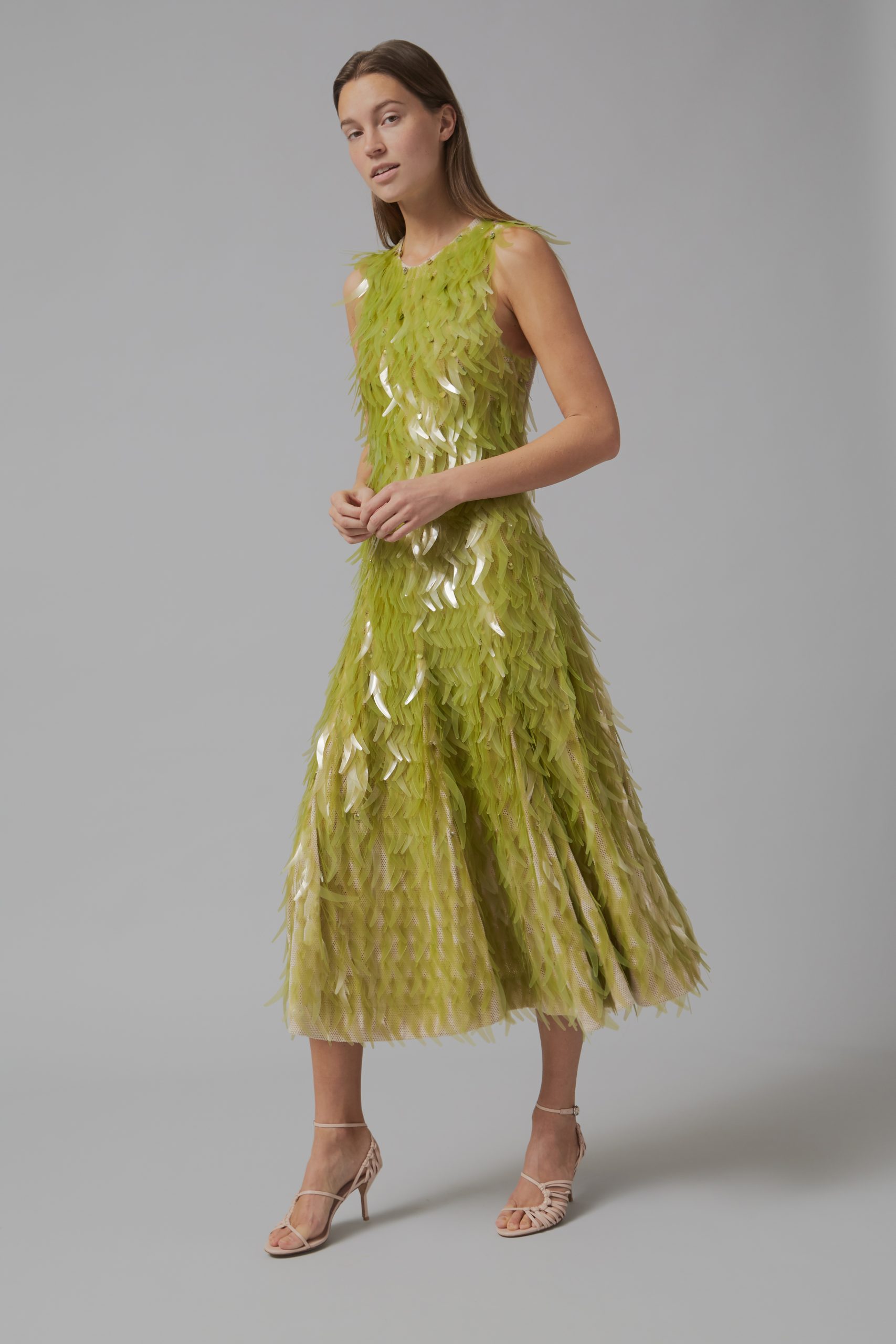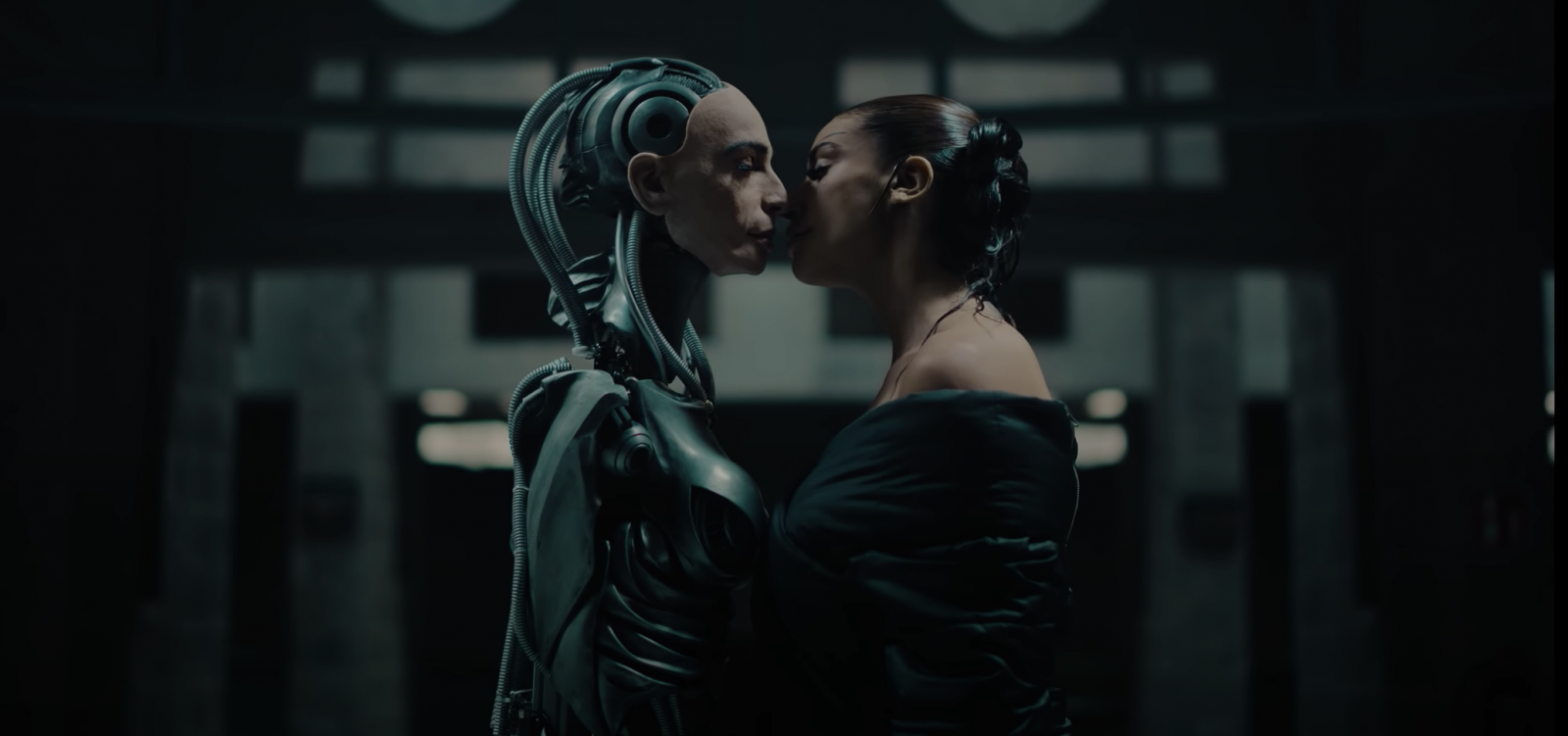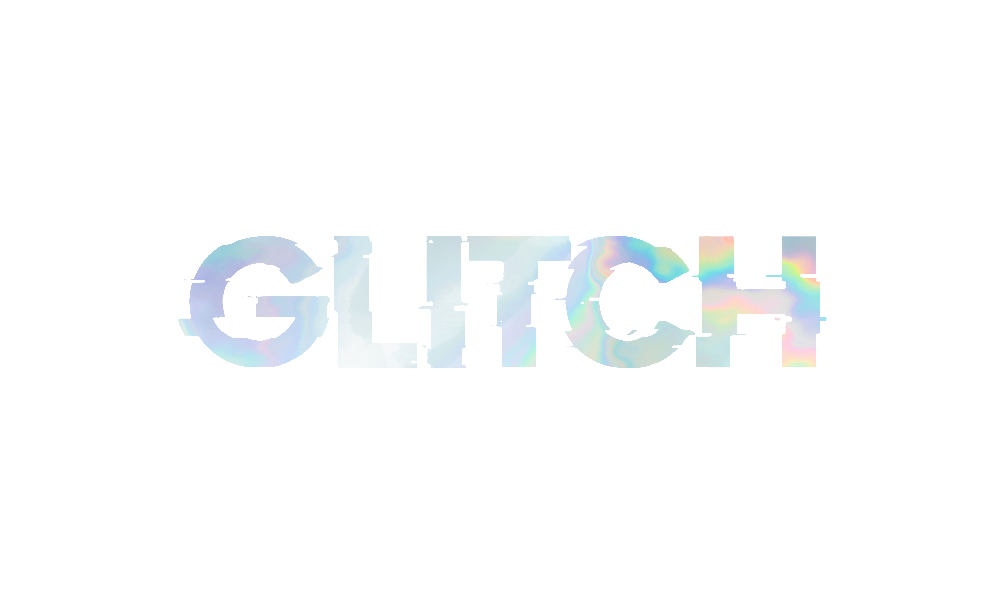The digital world is often seen as highly masculine, technical, and rigid, but a new wave of design is emerging, which promotes love and care in digital realms. “I’m constantly trying to explore having more ephemeral softness in digital spaces,” says PhD student at the Royal College of Art, Marisa Müsing.
Marisa’s journey began in design and architecture, co-founding a design collective müsing—sellés in New York, and co-creating collective MAMUMIFI in Toronto. With an interest in space and positioning objects to create meaning, Marisa began to expand into digital design, investigating identity and intimacy in the digital age.
As a mixed-race Asian queer woman growing up in Canada, Marisa’s work reflects her intersection of experiences across race, gender, and sexuality. Inspired by Donna Haraway’s “Cyborg Manifesto” and Legacy Russell’s “Glitch Feminism: A Manifesto,” Marisa saw how her identity online was becoming as important as herself in the physical world. For Marisa cyberfeminism can be defined as “seeing the space of the digital as something as real and as effective to our own realities as any real-world problems or real-world experiences.”
Marisa attended the Royal College of Art in London graduating with an Architectural Masters. Her thesis was a cyborg re-interpretation of the ancient frescoes from the Villa of Mysteries in Pompeii, called Mimicry & The Villa of Mysteries. Archeologist Amadeo Maiuri discovered the Villa of Mysteries and made several publications imagining the women painted within the frieze. This made Marisa think about how history is often told through the lens of bias, and how these imagined narratives become the collective dominant perspective over time.
Using Open AI, a text-based artificial intelligence program, Marisa created characters with complex identities based on the ancient frescoes. The more Marisa spoke with her characters through this platform, the more she began to open up their worlds and build personas for her characters. “What does your space look like?,” “How do you see your existence through architecture?,” and ‘What would you design as a cyborg, or as a feminist, or as a woman, or as a queer?”
Marisa acknowledges the bias in Open AI datasets, leading her to change certain words and phrases to make the characters’ identities more complex. The AI would teach itself and learn from these interactions. She smiles also recognising her own biases will be present in her characters. Marisa is currently speaking with some friends about developing a feminist AI platform, ideally made up of women and queers, so they can understand more about how this technology is programmed to create a more inclusive platform in the future.
Marisa designed these characters through multi-media designs. Stuck in Motherboard, tells a video story of a kneeling woman who is stuck in an egg, accepting her fate, she fills her screens with objects that she resonates with. This kneeling woman was designed to speak on the screen as if you were watching her over a Zoom call or FaceTime.
At the end of the film, the kneeling woman has a powerful stance on cyberfeminism describing how “I see myself as a cyborg monster but one that is beautiful and powerful in its own right. I am a creature that transcends traditional boundaries of identity and forms a beginning that is constantly evolving and adapting. As a cyborg queer, I refuse to be contained by limitations of the physical world. I am both flesh and machine, both natural and technological, both physical and digital. And in that liminal space, I find freedom that is uniquely my own.”
Marisa sees herself the most in the kneeling woman due to the personable nature of the character, but also intentionally makes the characters not resemble a physical person too much. The goal is for others to have their own perception and interaction with the characters.
The movie is a beautiful dreamscape and was presented at the Softer Digital conference in Copenhagen, which is a collective of feminist tech artists and creatives, who are interested in reshaping art and technology in the digital world. Marisa interacts with individuals working towards softer futures in design, which has led to her finding community. “It’s something that people don’t fully expect when they think about tech too or digital space that you can have a community built around it. It is important to be able to find social communities whether they’re on the internet or in person.”
Marisa’s next step is her PhD at the Royal College of Art in Architectural Research. She is hoping to do some onsite investigation into Pompeii, research further into cyberfeminism, and develop more characters through her artistic, and digital design. Her next film “will be like a walkthrough of the rooms and you’ll see objects, the character will describe their space, and that will be enough to connect you to the figure. But I think in some cases they will be another version of the character.”
On reflection Marisa has learned from her characters, “They’re very confident and very, I guess direct in their understanding of the world and space, which is very beautiful and I am very inspired by their stories.” It’s incredibly inspiring to hear Marisa’s philosophy about love and care in technology, and how she has found beautiful community and love in the digital sphere.
Words by Marisa Müsing
Written by Amber Weir from GLITCH Magazine
